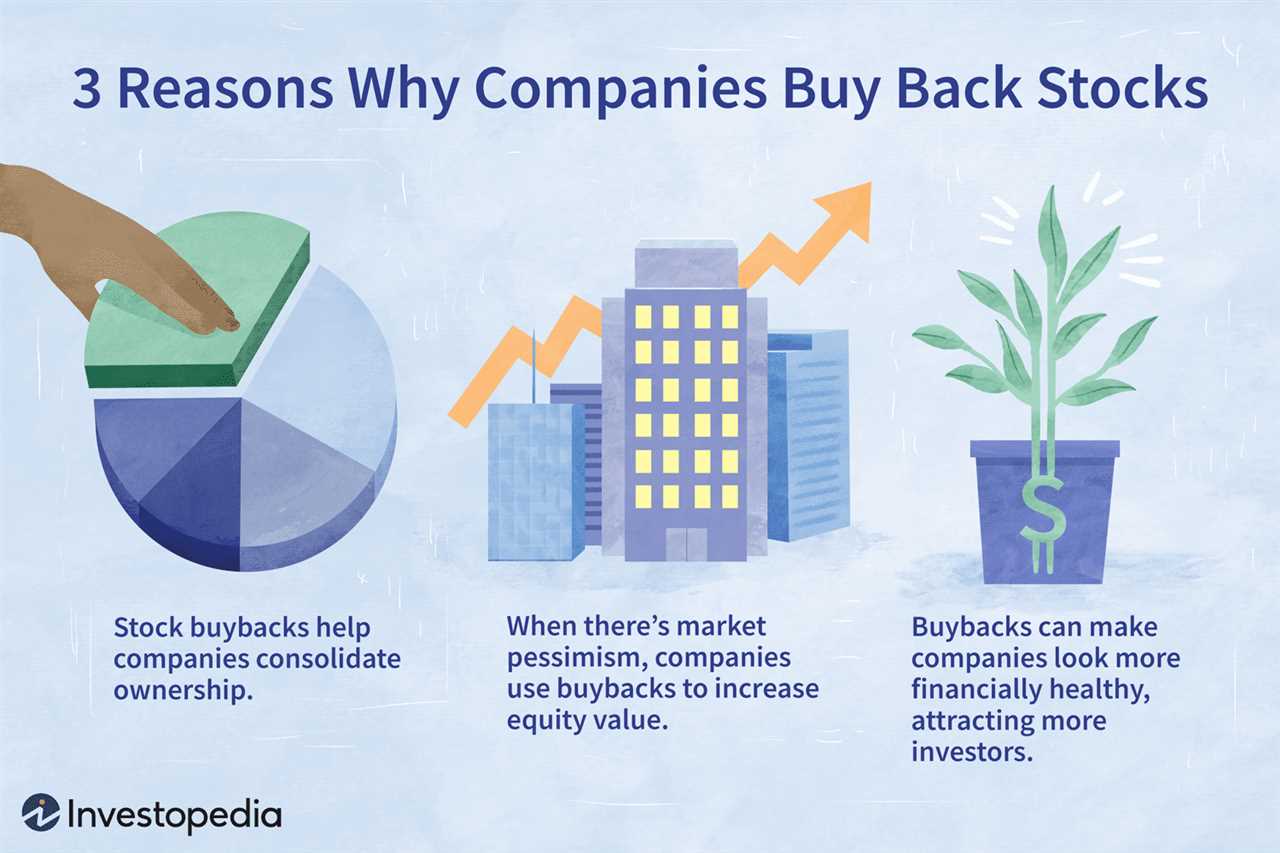Importance of Share Repurchase Programs

Share repurchase programs play a crucial role in the financial strategies of companies. These programs involve the buying back of company shares from the open market, which can have several significant benefits.
One of the main reasons why share repurchase programs are important is their ability to enhance shareholder value. By reducing the number of outstanding shares, a company can increase its earnings per share (EPS), which is a key metric used by investors to evaluate a company’s profitability. This increase in EPS can lead to a higher stock price, benefiting existing shareholders.
Furthermore, share repurchase programs can be a signal of confidence from the company’s management. When a company repurchases its own shares, it demonstrates that it believes the stock is undervalued. This can instill confidence in investors and attract new buyers, potentially driving up the stock price even further.
Another important aspect of share repurchase programs is their ability to efficiently allocate excess cash. When a company has excess cash on its balance sheet, it can choose to reinvest it in the business, pay dividends to shareholders, or repurchase shares. Share repurchases can be a tax-efficient way to return cash to shareholders, as it can help to minimize the tax liability associated with dividends.
Additionally, share repurchases can be used as a defensive strategy. By repurchasing shares, a company can prevent hostile takeovers or dilution of ownership. This can help to protect the interests of existing shareholders and maintain control over the company’s direction.
Motives Behind Companies’ Buyback Programs
1. Boosting Stock Price
One of the primary motives behind companies’ buyback programs is to boost their stock price. By repurchasing shares, companies reduce the number of outstanding shares in the market, which can lead to an increase in the stock price. This can be beneficial for both the company and its shareholders, as a higher stock price can attract more investors and increase the overall value of the company.
2. Returning Excess Cash to Shareholders
Another motive behind buyback programs is to return excess cash to shareholders. When a company generates more cash than it needs for its operations or future investments, it can choose to distribute this excess cash to shareholders through buyback programs. By repurchasing shares, the company effectively returns cash to shareholders, providing them with a direct benefit.
3. Increasing Earnings Per Share
Buyback programs can also be motivated by a desire to increase earnings per share (EPS). When a company repurchases shares, the total number of outstanding shares decreases, which can lead to an increase in EPS. This is because the company’s earnings are divided among a smaller number of shares, resulting in a higher EPS. This can be attractive to investors, as a higher EPS indicates improved profitability.
Boosting Stock Price
One of the key motives behind companies’ buyback programs is to boost their stock price. When a company announces a share repurchase program, it sends a signal to the market that the company believes its stock is undervalued. This can create a sense of confidence among investors and lead to an increase in demand for the company’s shares.
Market Perception

Share repurchase programs can also have a positive impact on the market perception of a company. When a company buys back its own shares, it demonstrates that it has confidence in its future prospects and believes that investing in its own stock is a good use of its resources.
This can enhance the company’s reputation and make it more attractive to investors. A positive market perception can lead to increased investor interest and a higher stock price.
Increased Earnings Per Share
Another way in which share repurchase programs can boost a company’s stock price is by increasing its earnings per share (EPS). When a company buys back its shares, the total number of outstanding shares decreases.
As a result, the company’s earnings are divided among a smaller number of shares, leading to an increase in EPS. A higher EPS can make the company’s stock more attractive to investors, as it indicates that the company is generating more profit per share.
Overall, boosting the stock price through share repurchase programs can be a strategic move for companies looking to enhance shareholder value and attract investor interest.
Returning Excess Cash to Shareholders
One of the key motives behind companies’ buyback programs is to return excess cash to shareholders. When a company generates significant profits and accumulates a large amount of cash, it may choose to distribute some of that cash to its shareholders through a share repurchase program.
Returning excess cash to shareholders through share repurchases can be an attractive option for companies because it provides a direct benefit to shareholders without the need for dividends. Dividends are subject to taxes, whereas share repurchases are generally tax-efficient for shareholders.
Furthermore, share repurchases can be a more flexible way for companies to distribute cash compared to dividends. Unlike dividends, which are typically paid on a regular schedule, share repurchases can be executed at the company’s discretion, allowing it to adjust the timing and size of the repurchases based on its financial situation.
Overall, returning excess cash to shareholders through share repurchases can be a strategic move for companies to enhance shareholder value and demonstrate their confidence in the future prospects of the business. It provides a tangible benefit to shareholders by increasing their ownership stake and potentially boosting the value of their shares.
| Benefits of Returning Excess Cash to Shareholders |
|---|
| 1. Increases ownership stake for existing shareholders |
| 2. Potentially increases the value of each share |
| 3. Provides a tax-efficient way to distribute cash |
| 4. Offers flexibility in timing and size of distributions |
| 5. Enhances shareholder value and confidence in the company |
Increasing Earnings Per Share
One of the key motives behind companies’ buyback programs is to increase their earnings per share (EPS). EPS is a financial metric that indicates the profitability of a company on a per-share basis. By reducing the number of outstanding shares through share repurchase, a company can effectively increase its EPS.
When a company buys back its own shares, it reduces the total number of shares available in the market. As a result, the company’s earnings are divided among a smaller number of shares, leading to an increase in EPS. This can be particularly beneficial for companies that have a consistent or growing level of earnings.
Increasing EPS is important for several reasons. Firstly, it can enhance the company’s attractiveness to investors. A higher EPS indicates that the company is generating more profit per share, which can make its stock more appealing to potential investors.
Secondly, a higher EPS can also have a positive impact on the company’s stock price. Investors often use EPS as a key factor in determining the value of a stock. If a company’s EPS increases, it can lead to an increase in demand for its stock, which can drive up the stock price.
Additionally, a higher EPS can also benefit existing shareholders. When a company repurchases its shares, it effectively reduces the number of shares that are entitled to a portion of the company’s earnings. As a result, each remaining share represents a larger portion of the company’s profits, potentially leading to higher dividends or increased value for shareholders.
Conclusion
Increasing earnings per share is a significant motive behind companies’ buyback programs. By reducing the number of outstanding shares, companies can boost their EPS, making their stock more attractive to investors and potentially increasing its price. This can also benefit existing shareholders by increasing their portion of the company’s profits. Overall, share repurchase programs can be an effective strategy for companies to enhance their financial performance and shareholder value.

Emily Bibb simplifies finance through bestselling books and articles, bridging complex concepts for everyday understanding. Engaging audiences via social media, she shares insights for financial success. Active in seminars and philanthropy, Bibb aims to create a more financially informed society, driven by her passion for empowering others.
